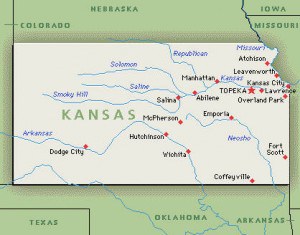A Comcast customer of seven years has been warned if he exceeds the company’s arbitrary 250GB usage cap one more time, his family will be cut off from the cable company’s Internet service for one year.
Jrodefeld is just one more example of a customer who never thought he would have to monitor an online usage gauge to enjoy the Internet service he pays good money to receive. But Comcast has deemed him an Internet abuser for exceeding a usage limit the company takes pains to bury in its lengthy terms and conditions, far away from glitzy marketing promising a fast, always-on experience.
In my house there are five people with five computers, several smartphones, a Playstation 3 and AppleTV all connected to the Internet through a wireless router. Several of us are tech minded people who need to be able to send and receive large amounts of data through our network and publish material on the Internet.
Not only that, but I have (legally) downloaded films through places like iTunes and downloaded games and software in the same manner. I create digital content (web pages, animation, other content) and publish it on the Internet. Not only that, but I send this content to friends and colleagues through web hosting sites like Netload. I download games and watch streaming Netflix through my Playstation 3.
I think it is absolutely beyond belief that Comcast can offer the speeds that they do, with the evolving demands of the Internet and modern digital demands that people have, and think that 250GB is sufficient for even the moderately tech savvy user. This data cap is absolutely horrible and is an insult to my family and an abomination given how much money we have given to Comcast over the last several years for their service, amounting in the thousands of dollars. Not to mention that we signed up with the idea of getting an “always on”, unlimited service.
Jrodefeld claims his family steers clear of the usual suspect of heavy usage consumption — peer-to-peer software. But with five tech-savvy teenagers and high-tech workers living under one roof, Comcast’s usage meter reflected the family was several times over the company’s usage limits:
- In May, 2011 the total data used was: 1363GB
- In June, 2011 the total data used was: 758GB
- In July, 2011 the total data used was: 1271GB
 Based on a review of the applications being run by those achieving that level of usage, online file backup is usually the culprit generating the most usage. That is closely followed by avid online streaming and gaming. While game-play itself is probably not much of a factor, the relentless number of game updates and new games distributed over an Internet connection can easily exceed several gigabytes each. The family also streams some very high bitrate HD movies over a video rental service that uses their Comcast Internet connection to provide the video. That can run nearly 10GB an hour in some cases, Jrodefeld says.
Based on a review of the applications being run by those achieving that level of usage, online file backup is usually the culprit generating the most usage. That is closely followed by avid online streaming and gaming. While game-play itself is probably not much of a factor, the relentless number of game updates and new games distributed over an Internet connection can easily exceed several gigabytes each. The family also streams some very high bitrate HD movies over a video rental service that uses their Comcast Internet connection to provide the video. That can run nearly 10GB an hour in some cases, Jrodefeld says.
For usage cap opponents, this represents the perfect example of what can happen in families that rely on video streaming and have teenagers living at home. While one individual may have little trouble staying within Comcast’s arbitrary 250GB limit, unchanged since its introduction in 2008, the more Internet-savvy members in a household sharing a connection, the bigger the risk for Internet Overcharging or a warning e-mail.
Comcast says their average user keeps usage well under 10GB per month. But they don’t provide any demographic breakdown of usage profiles. Older households may pay for an Internet account exclusively for web browsing and e-mail. Younger households, those with teenagers, and cord-cutters who rely on Internet video streaming will almost certainly use considerably more.
Jrodefeld can’t believe Comcast has stuck his family with a “one size fits all” Internet experience. And their reasons for the 250GB usage cap don’t make any sense.
“On the one hand, it is said that a user going over that threshold hurts the Internet experience for other users in your area, and on the other hand Comcast claims that the ‘average’ user uses only 2-4gb per month,” he notes. “If that is the case, then multiple users who average 250GB a month would slow down the Internet far more than one individual who uses, say, 500GB in a month.”
“If such a small number of users exceed the cap, Comcast’s network should easily be able to allow that without it affecting other users,” he argues. “If, on the other hand, many users are exceeding the cap, it means that the limit is far too small and Comcast should upgrade their infrastructure if they cannot keep up with user demands.”
In fact, Comcast has upgraded the Internet experience for most of their customers considerably since they introduced a usage cap. The company has aggressively deployed DOCSIS 3 upgrades, exponentially increasing the amount of bandwidth available in individual neighborhoods, allowing them to sell highly-profitable, faster tiers of service and eliminating congestion issues. But no matter what speed you buy, or how much you spend, Comcast imposes the same 250GB usage limit on all residential accounts.
Comcast company officials had nothing to offer Jrodefeld, but several other Comcast customers did: upgrade to a Business Class account, if only to be rid of the usage limits. Comcast Business Class service currently has no usage limitations, and carries this pricing in the northeast, before taxes and fees:
- Starter Plan — 12/2Mbps: $59.95/mo Best Value
- Preferred Plan — 16/2Mbps: $89.95/mo
- Premium Plan — 22/5Mbps: $99.95/mo Best Speed/Performance Value
- Deluxe Plan — 50/10Mbps: $189.95/mo
- Installation Fee: 1 year contract = $199, 2 years = $99, 3 years = $49
The alternative is to sign with a telephone company provider, but AT&T also has a 250GB usage limit on their U-verse service, and charges an overlimit fee of $10 for every 50GB of excess usage. Verizon FiOS offers unlimited service.


 Subscribe
Subscribe










